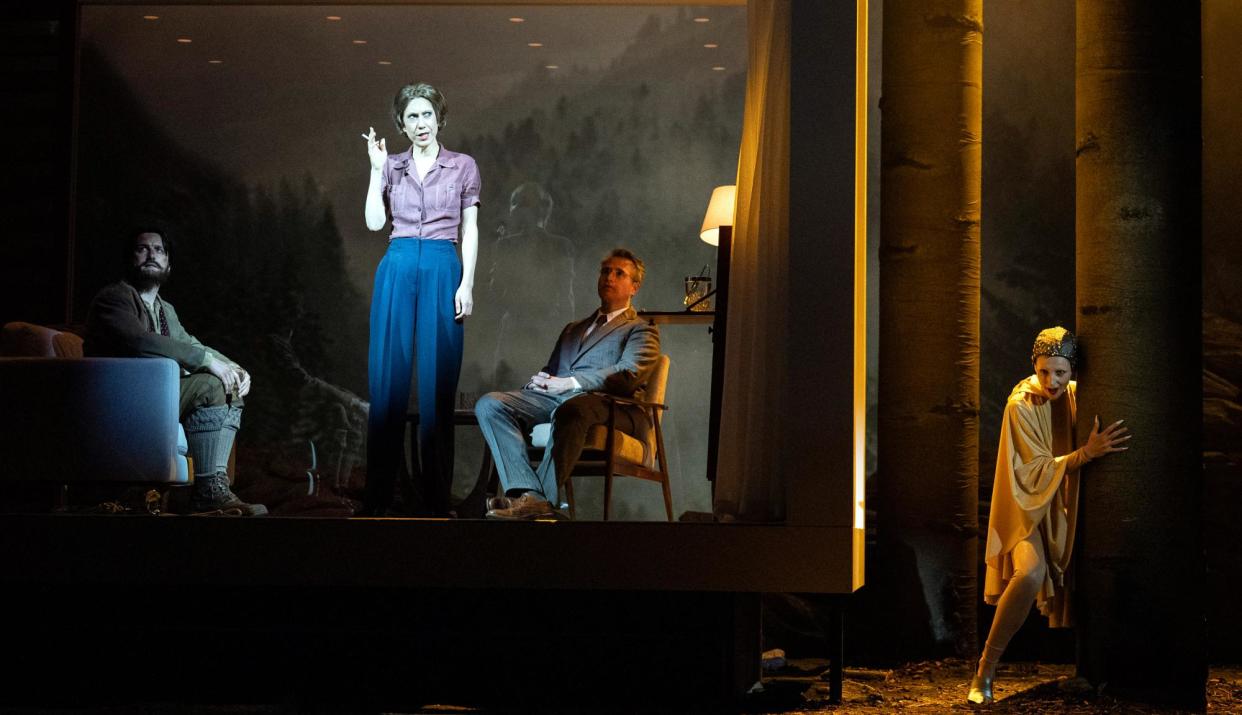Blond Eckbert review – Judith Weir’s bare-bones opera kicks off Aldeburgh festival

A month after her 70th birthday, Judith Weir is one of the featured composers at this year’s Aldeburgh festival, which opened with a single performance of English Touring Opera’s new staging of her third opera, Blond Eckbert. For those who remembered the premiere at English National Opera in 1994, it must have seemed a distinctly different work, for this was the “pocket version” of Blond Eckbert, first performed in 2006. The cast of four was unchanged, but the scoring has been scaled down from full orchestra to an ensemble of just 10 players, and the work itself shortened; the Snape Maltings performance lasted barely 55 minutes.
Weir’s libretto has plenty of authentically operatic ingredients – there’s murder and incest, paranoia and insanity. Based on a novella by the German romantic writer Ludwig Tieck, it’s the tale of Eckbert, whose secluded idyll with his wife, Berthe, in the Harz mountains of northern Germany ends in tragedy when his friend Walter reveals he knows much more about Berthe’s childhood than he should, and finally reveals a monstrous secret.
When Walter reappeared, got up in yeti-like furs, the final scene teetered on the edge of the ridiculous
Already compressed in the original libretto, the narrative seemed even more perfunctory now. And while the use of a chamber ensemble underlined the economy of Weir’s music and her ability to crystallise a mood or an emotion in a single instrumental line or a handful of notes, it also emphasised that dramatic frailty. This is a story with terrible consequences, but the laconic presentation and mostly prosaic vocal writing hardly conveyed any of that horror.
Not that Robin Norton-Hale’s drab production, designed by Eleanor Bull, was much help. The setting was contemporary; Eckbert’s castle became a spartan modern apartment, and just a few schematic trees hinted at the archetypal forest of German folklore in which the climactic horror takes place. The narrative remained opaque, and when Walter reappeared as the threatening Hugo got up in yeti-like furs, the final scene teetered on the edge of the ridiculous.
Though the singers had little scope for making their characters convincingly three-dimensional, musically all the performances under conductor Gerry Cornelius were excellent. The text came across clearly from Simon Wallfisch as Eckbert and William Morgan as Walter, and especially when Flora McIntosh’s Berthe revealed the story of her childhood. Aoife Miskelly had the most rewarding vocal lines in the smooth melismas that Weir gives to the Bird, who also narrates the story. But it all remained stubbornly uninvolving.
• Blond Eckbert will be part of English Touring Opera’s autumn season from 5 October to 16 November. The Aldeburgh festival continues to 23 June.


